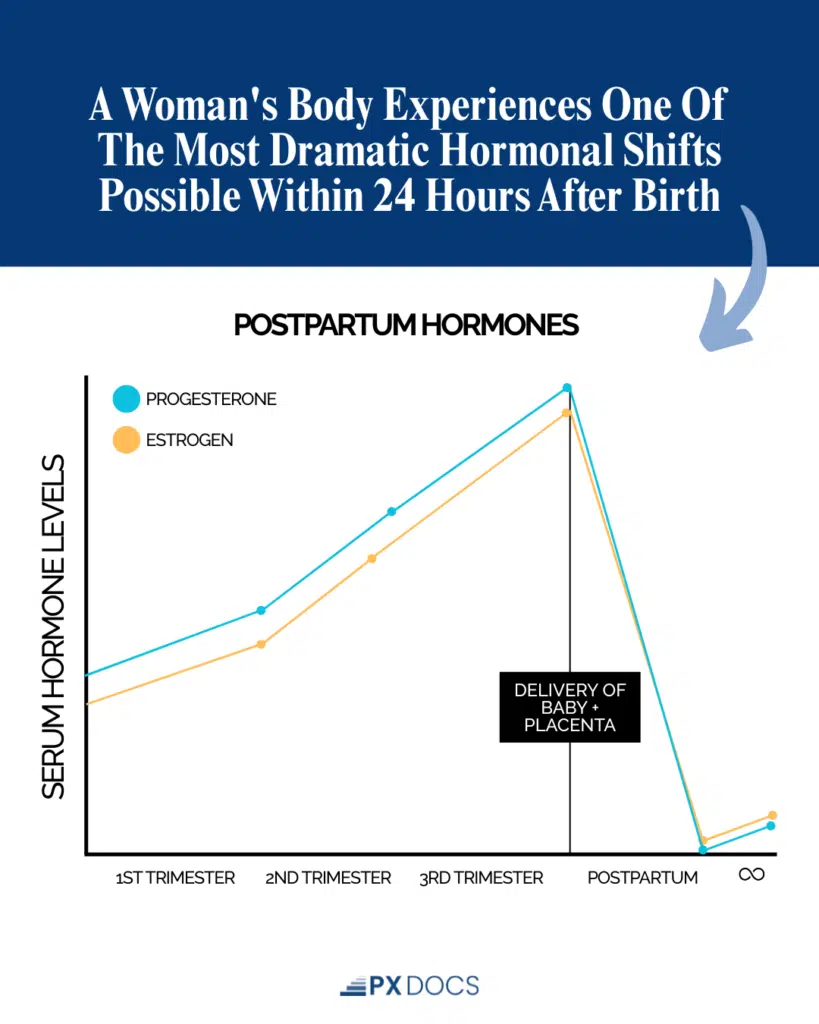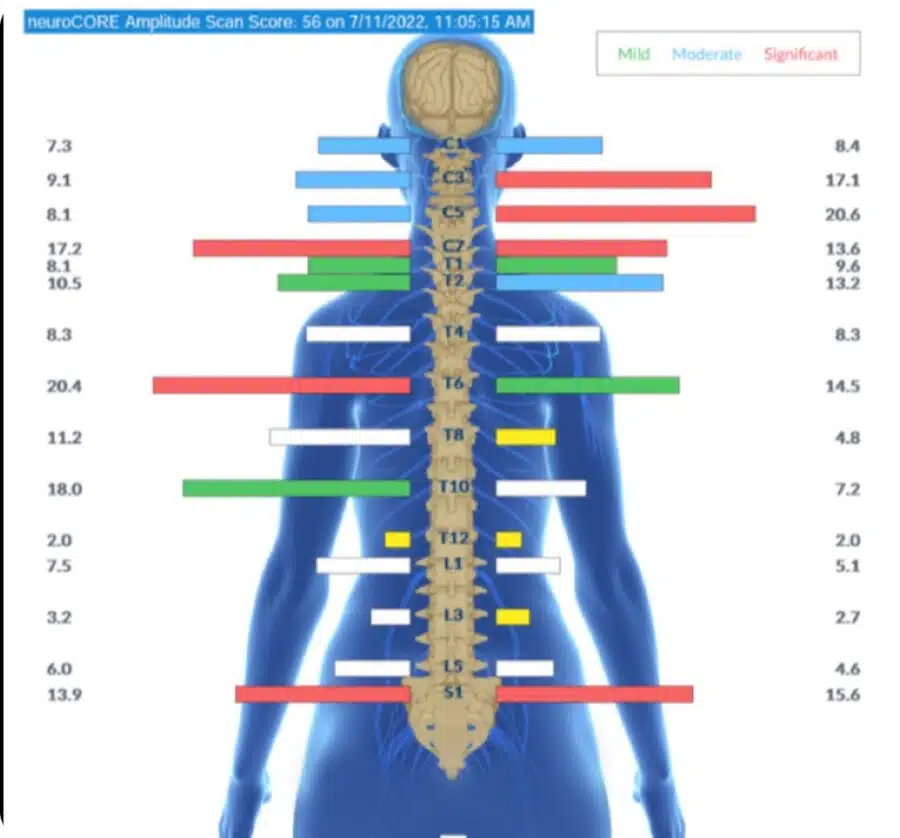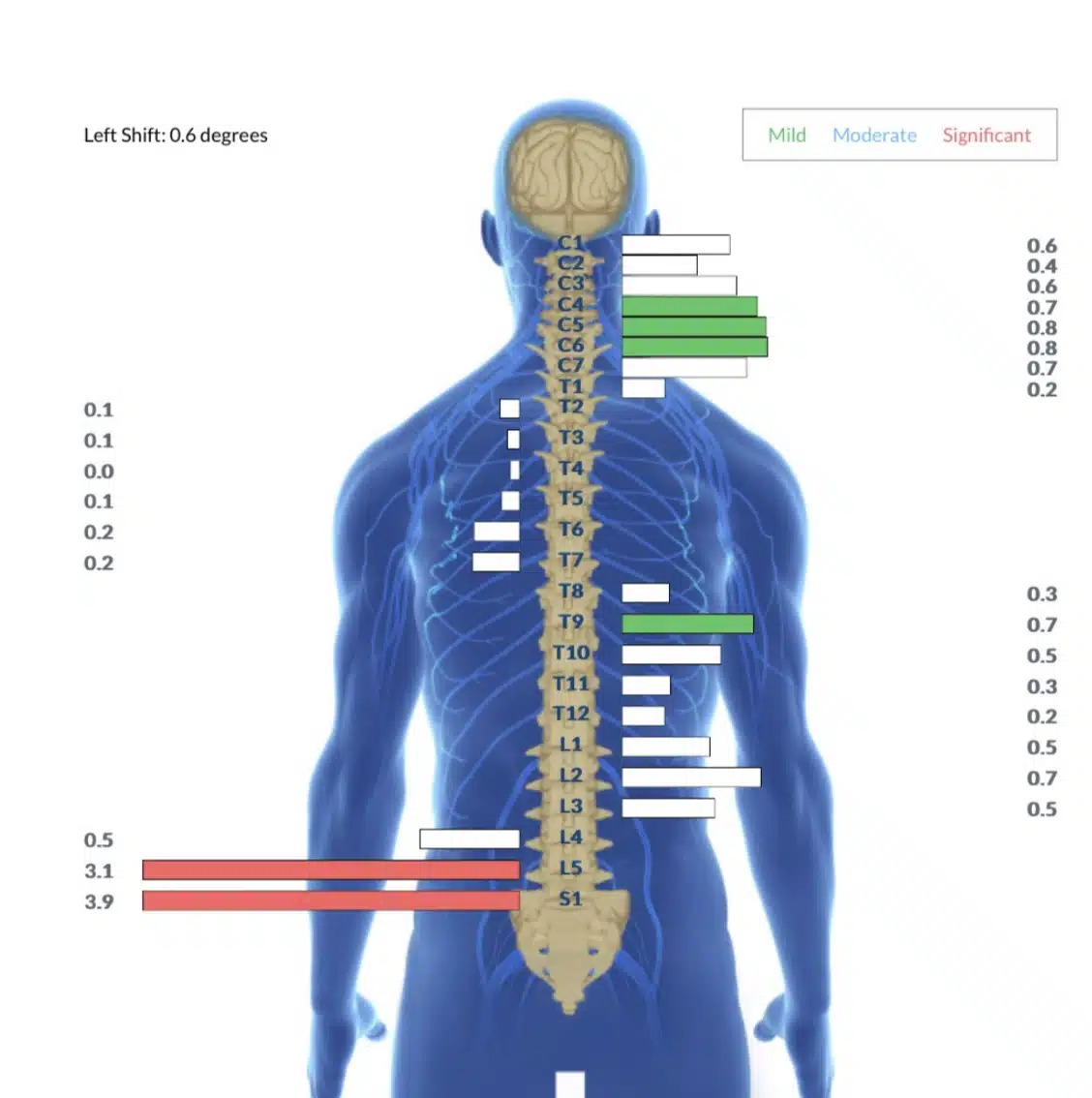WElcome TO
Explore our blog that focuses on holistic care for any and all ages - pediatric well-being, pre/post-natal health, and adult vitality.
THE BLOG

While most pregnant mamas spend months preparing for pregnancy and birth, the postpartum period often remains surprisingly overlooked! Despite lasting far longer than labor and delivery, this critical phase receives just a fraction of the attention and support. Why isn’t anyone talking about this phase of life?!
It is estimated that approximately 10-20% of mothers experience postpartum depression (PPD), highlighting its significance as a public health concern.
New mothers typically feel unprepared for the physical and emotional challenges that follow childbirth. Medical care usually focuses on a brief six-week checkup, but the postpartum adjustment period actually lasts much longer—sometimes a full year or more. It really isn’t fair the type of care we receive as postpartum moms. Just a simple 6-week check up?! And don’t get us started on if you had a c-section! Major abdominal surgery just looked over?! It’s not okay!
The reality is that birth is just the beginning. Both mother and baby undergo profound physiological changes during the postpartum period.
What many parents don’t realize is that these challenges often have a common root cause: nervous system dysregulation. The physical trauma of birth can create subluxation (neurological interference) and dysautonomia (nervous system imbalance) in both mother and baby, leading to issues from breastfeeding difficulties and sleep problems, to mood swings and colic.
Neurologically-Focused Chiropractic Care offers a gentle, effective approach to addressing these root causes rather than just managing the signs. By restoring proper nervous system function, it can significantly improve recovery and adaptation for both mother and baby during this critical transition.
What is Postpartum Chiropractic Care and Why Is It So Important?
The postpartum period extends far beyond the conventional medical definition of six weeks after birth. From a neurological perspective, this phase represents an extraordinary transition where both mother and baby’s nervous systems are adapting to insane changes.
For mothers, the nervous system must recalibrate after the intense physical demands of pregnancy and birth, while simultaneously adjusting to dramatic hormonal fluctuations. For babies, the developing neurological system is working overtime to process a flood of new sensory information after leaving the protected environment of the womb.
This neurological recalibration can be significantly disrupted by what we call subluxation—areas of neurological interference where communication between the brain and body is compromised. The physical strain of pregnancy and birth can create tension in the neurospinal system, particularly in the upper neck, pelvis, and low back. These areas of subluxation can alter proprioceptive input (body position awareness) into the brain, creating stress and dysfunction throughout the nervous system.
When subluxation persists, it often leads to dysautonomia—a state of imbalance in the Autonomic Nervous System. The Autonomic Nervous System has two main components: the sympathetic “fight or flight” branch and the parasympathetic “rest, digest, and regulate” branch. During the postpartum period, dysautonomia commonly turns into sympathetic dominance, where the body stays stuck in a heightened stress response. And once stuck in sympathetic dominance for too long, the body becomes exhausted. This can lead to:
- Difficulty relaxing and sleeping, even when exhausted
- Persistent anxiety, irritability, or mood swings
- Digestive problems and constipation
- Challenges with milk production and let-down during breastfeeding
- Heightened pain sensitivity and delayed healing
- Increased inflammation and immune system irregularities
For babies, birth-related subluxation often affects the structures of the upper neck and cranium. When these areas are compromised, it impacts the function of the vagus nerve—the master regulator of the Parasympathetic Nervous System. This can contribute to common newborn challenges such as difficulty latching, colic, reflux, constipation, and irregular sleep patterns. Since a baby’s nervous system is still developing, addressing these issues early is crucial for optimal neurological development.
The Neurological Impact of Birth on Mom and Baby
Birth is truly a marathon—both physically and neurologically—for mother and baby alike. For mothers, labor and delivery demand extraordinary physical exertion, with the body producing complex hormones while experiencing intense pressure, stretching, and sometimes tearing of tissues.
What many don’t realize is that birth is equally demanding for babies. During delivery, a baby experiences significant compression and twisting forces as they navigate the birth canal. The baby’s head must mold to fit through the pelvis, with cranial bones overlapping and the neck often rotating to accommodate passage. Not to mention if their are other forces interfering with baby such as manual assistance, forceps, vacuum, etc. Studies have documented that this process can reach pressures of from 120 to over 500 mmHg on a newborn’s head and neck—an extraordinary amount of force on such small and delicate structures.
These emotional and physical stressors during birth can create subluxation, where communication between the brain and body is compromised. For mothers, subluxation commonly occurs in the:
- Pelvis and sacrum, which can affect recovery, bladder function, and future fertility
- Lumbar spine, contributing to postpartum back pain and core weakness
- Upper cervical spine, impacting the function of the brainstem and vagus nerve
- Thoracic spine, affecting rib motion, breathing, and breast tissue function
For babies, birth-related subluxation most frequently affects the upper cervical spine and cranium, where the vagus nerve and other cranial nerves emerge from the brainstem. When irregular neurodevelopment occurs, it can interfere with vital functions like sucking, swallowing, breathing, and digesting—all essential for a newborn’s transition to life outside the womb. Depending on the birth, we see many babies with subluxations in other areas of their nervous system too.
Birth interventions, while sometimes medically necessary, can significantly increase the risk of subluxation for both mother and baby. Cesarean deliveries involve surgical trauma to the mother’s abdomen and uterus, creating significant strain on the nervous system. Interventions like forceps or vacuum extraction can exert additional force on the baby’s delicate head and neck. Even common interventions like induction, epidurals, and directed pushing can alter the natural biomechanics of birth, potentially increasing stress on both nervous systems.
This birth-related subluxation often becomes the first component of what we call “The Perfect Storm“— stressors that can overwhelm the developing nervous system. When birth trauma creates subluxation and nervous system dysfunction from the very beginning, it sets the stage for challenges that may extend far beyond the immediate postpartum period.
Addressing these neurological imbalances early through neurologically-focused chiropractic care can help prevent this storm and support optimal recovery and development for both mother and baby.
Postpartum Hormonal Shifts and the Nervous System
The postpartum period brings one of the most dramatic hormonal shifts a woman will ever experience. Within 24 hours of birth, estrogen and progesterone—hormones that are elevated during pregnancy—plummet.
Meanwhile, research shows that prolactin rises to support milk production, and oxytocin fluctuates with breastfeeding and bonding. This abrupt hormonal transformation is often described as “falling off a cliff” hormonally, and it profoundly impacts the nervous system.
What many don’t realize is that these hormones don’t just affect reproductive functions—they directly influence neurotransmitters in the brain and the balance of the Autonomic Nervous System. Estrogen regulates serotonin and dopamine, which are crucial for mood. After birth, the drop in estrogen and progesterone leads to a rapid decrease in serotonin levels. A dysregulated nervous system can be associated with “baby blues” and more severe postpartum mood conditions.

This hormonal flux can significantly be impacted by the Autonomic Nervous System, leading to dysautonomia. When the nervous system becomes dysregulated and created hormonal shifts, it can lead to:
- Difficulty sleeping, even when exhausted
- Anxiety, racing thoughts, or feeling constantly “on edge”
- Heart palpitations or chest tightness
- Temperature regulation issues like night sweats or chills
- Digestive disruptions such as constipation or reflux
- Heightened sensitivity to stimuli like noise, light, or touch
The vagus nerve, the longest cranial nerve and key component of the Parasympathetic Nervous System, is essential for mediating the body’s hormonal responses. It activates “rest, digest, and regulate” functions, promoting calmness, supporting digestion, reducing inflammation, and aiding emotional regulation.
The Mother-Baby Neurological Connection
The connection between mother and baby goes far beyond the emotional bond—it’s a profound neurological relationship where each nervous system directly influences the other. This concept, known as co-regulation, is especially critical during the postpartum period when a baby’s immature nervous system relies heavily on the mother’s more developed system for stability and organization.
A newborn’s Autonomic Nervous System is still developing and lacks the self-regulation capabilities of an adult. Instead, studies indicate that babies depend on close physical contact with their mothers to regulate their heart rate, breathing patterns, body temperature, and stress hormones. This regulation occurs through a remarkable process of physiological synchronization, where the mother’s body literally helps train the baby’s developing systems through skin-to-skin contact, heartbeat, breathing rhythms, and vagal tone.
When a mother’s nervous system is regulated and balanced, her baby tends to settle more easily, feed more effectively, and develop more securely. Conversely, when a mother experiences nervous system dysregulation due to subluxation, stress, or hormonal imbalances, her baby often exhibits signs of distress.
This neurological connection creates both vulnerability and opportunity. If left unaddressed, dysregulation can create a challenging cycle where mother and baby continuously trigger each other’s stress responses. However, when a mother receives Neurologically-Focused Chiropractic Care that improves her nervous system function, the benefits can naturally extend to her baby through this co-regulatory relationship.
Common Postpartum Challenges and Their Neurological Roots
Many postpartum challenges that are typically viewed as separate issues—breastfeeding difficulties, sleep problems, mood conditions, physical recovery complications—actually share common neurological roots. Understanding these connections allows for a more comprehensive approach to postpartum care.
Breastfeeding challenges often have direct ties to nervous system function. The let-down reflex, which releases milk from the breast, depends on optimal Parasympathetic Nervous System activation through the vagus nerve. When a mother experiences subluxation that affects vagal tone, milk transfer may be compromised despite adequate milk production or an overproduction.
Sleep difficulties—a nearly universal postpartum challenge—are deeply connected to Autonomic Nervous System balance. A nervous system stuck in sympathetic dominance (fight-or-flight mode) makes it difficult to relax into deep, restorative sleep, even when exhausted. This can create a frustrating cycle where a mother is desperately tired yet unable to sleep when given the opportunity.
For babies, neurological dysregulation often looks like:
- Shortened naps
- Frequent night waking
- Difficulty transitioning between sleep cycles.
Postpartum mood challenges represent perhaps the most significant intersection of neurological, hormonal, and psychological factors. While traditionally viewed through a purely psychological or hormonal lens, vagus nerve dysfunction—plays a crucial role in these factors.
Physical recovery complications like persistent pelvic pain, incontinence, diastasis recti, and headaches often have neurological components that extend beyond simple tissue healing. Subluxation can disrupt the nerve signals needed for proper muscle engagement, coordination, and pain regulation.
How Neurologically-Focused Chiropractic Care Helps Postpartum
Neurologically-Focused Chiropractic Care offers a unique approach to addressing postpartum challenges by focusing on the root cause—nervous system dysfunction—rather than simply managing the signs and symptoms. This care begins with a comprehensive assessment that includes detailed neurological INSiGHT Scans, which provide objective measurements of Autonomic Nervous System function, stress patterns, and areas of subluxation.
These advanced scans serve as a “window” into the nervous system, allowing doctors to pinpoint exactly where and how subluxation is affecting neurological function. This precise information guides the development of personalized care plans tailored to each mother and baby’s specific needs, rather than using a one-size-fits-all approach.



For mothers, postpartum chiropractic adjustments offer numerous benefits:
- Restoring proper pelvic function after the physical demands of pregnancy and birth
- Reducing neurotension in the upper cervical spine to improve vagus nerve function and parasympathetic tone
- Enhancing nervous system communication to support hormone balance and regulation
- Improving sleep quality and duration through better autonomic balance
- Supporting proper muscle engagement for core recovery and reduced back pain
- Promoting optimal breast tissue drainage and nerve supply for breastfeeding
- Support co-regulation
For babies, gentle pediatric adjustments can help:
- Release neurotension in the upper neck and cranium from the birth process
- Improve cranial nerve function for better sucking, swallowing, and breathing coordination
- Enhance vagus nerve function for improved digestion and colic prevention
- Support proper head shape development and potentially avoid torticollis and plagiocephaly
- Establish balanced nervous system patterns during this critical developmental window
Pediatric adjustments especially, the pressure of an adjustment is often compared to testing the ripeness of a tomato—light and precise. These adjustments work by stimulating specific neurological receptors, providing the brain with updated information that allows it to reestablish proper regulation and function.
Honoring Your Postpartum Journey Through Neurological Support
The postpartum period is not just a brief phase to “get through”—it’s a profound neurological, physical, and emotional transition that deserves dedicated support and care. By understanding the central role of the nervous system in this journey, mothers can make informed choices that support optimal recovery and development for both themselves and their babies.
Neurologically-Focused Chiropractic Care offers a unique and valuable approach to navigating the postpartum period by addressing the root causes of common challenges rather than just managing traits. By restoring proper neurological function through gentle, specific adjustments, this care can help create a foundation of balance and regulation that supports healing, bonding, and thriving during this critical time.
If you’re preparing for birth or currently in the postpartum period, consider incorporating Neurologically-Focused Chiropractic Care into your support plan.


If you’re like most parents, you want answers. Real answers about what’s going on with your child’s health—not just guesses or “wait and see” approaches.
Maybe your little one struggles with sleep, digestion, or frequent ear infections. Perhaps your school-aged child struggles to focus or sit still. Or maybe your teen is battling anxiety that seems to come out of nowhere.
Here’s what we’ve learned after working with thousands of families: these seemingly different challenges often share a common thread—a wound-up, dysregulated nervous system that’s stuck in overdrive.
And here’s the empowering part: when you can see what’s happening in your child’s nervous system, you can finally address the root cause instead of just managing symptoms.
Why the Nervous System Matters More Than You Think
Think of your child’s nervous system as the control center for their entire body. It manages everything they don’t have to think about—breathing, heartbeat, digestion, immune function, sleep-wake cycles, and even how they respond to stress.
When the nervous system is functioning well, your child can adapt, learn, grow, and thrive. But when it’s stressed or dysregulated—whether from birth trauma, falls, illness, or accumulated daily stressors—it’s like driving with your foot stuck on the gas pedal with no way to tap the brakes.
The result? A body that can’t rest, digest properly, fight off infections effectively, or regulate emotions and behavior.
Enter: Neurological INSiGHT Scans
This is where modern technology meets proactive parenting. Neurological INSiGHT scans are completely safe, non-invasive tools that allow us to see exactly where stress may be “stuck” in your child’s body.
These aren’t guesses. They’re objective measurements that create a personalized roadmap for your child’s care—and yes, they make pretty cool pictures for the fridge, too!
Let’s walk through the three types of scans and what they reveal:
1. NeuroThermal Scan: The Autopilot Assessment
This thermal scan compares temperatures from one side of the spine to the other, showing us how well the autonomic nervous system is functioning.
Remember, the autonomic nervous system operates on autopilot—controlling breathing, heartbeat, digestion, immune responses, and more. (Okay, now that we mentioned breathing, you’re probably thinking about it.)
When we observe temperature imbalances, it indicates where the nervous system is working overtime—and where it requires support.
2. Surface EMG Scan: The Tension and Energy Map
This scan maps out how yours or your child’s neuromuscular system is functioning and where their body is holding energy or storing stress.
Think of it as a stress blueprint. It shows us tension patterns, areas of hyperactivity, and regions that may be exhausted or uncoordinated.
This scan is especially revealing for:
- ADHD and focus challenges
- Sensory processing struggles
- Seizure disorders
- Motor coordination issues
- Fertility challenges (for parents!)
When kids can’t sit still or seem constantly “revved up,” this scan often shows us why—their nervous system is literally stuck in a high-energy state.
3. Heart Rate Variability (HRV): The Stress Resilience Test
You may have heard of HRV if you use a device like the Oura ring, Whoop, Garmin, or Apple Watch. While those devices track certain aspects of HRV, our clinical technology gives us the complete picture.
HRV measures how well yours or your child’s body handles stress and whether the “gas pedal” (sympathetic) and “brake pedal” (parasympathetic) of their nervous system are working together in harmony.
What healthy HRV means:
- Good stress resilience
- Ability to calm down after activation
- Better sleep quality
- Improved focus and emotional regulation
What low or dysregulated HRV reveals:
- Chronic stress patterns
- Stuck in fight-or-flight mode
- Poor recovery and adaptation
- Vulnerability to illness and burnout
From Scans to Solutions: Your Child’s Personalized Care Plan
Here’s what makes this approach so powerful: these scans, combined with your child’s health history and your insights as a parent, give us the objective information we need to create a truly customized care plan.
No cookie-cutter protocols. No guessing games. Just targeted, nervous system-focused care designed specifically for your child’s needs.
What the Scan Experience Is Actually Like
We understand that bringing your child in for something new can be a source of uncertainty. Here’s what to expect:
When you arrive for your first visit, our team will greet you warmly, and give you a quick tour of the office.
The scan room itself is designed to be comfortable and non-intimidating. The scans are:
- Completely painless (no needles, no invasive procedures)
- Quick (usually completed in minutes)
- Safe (no radiation or harmful exposure)
- Appropriate for all ages (from newborns to great-grandparents)
Many children find the process fascinating—especially older kids who love seeing the colorful scans of their own nervous system!
We start with the HRV scan. Depending on their age, we will either use an ear clip for our little ones, a finger sleeve sensor for our big little kids, and our older kids and teenagers will be able to use the finger pad like the adults. This is the longest scan and will take 3 minutes. The stiller they can sit the better! But rest assured, this scan is designed with kids in mind and factors in for movement and activity being present.
Next will be the thermal scan. You or your child will be given a gown for this one if they’re willing to wear it. If not, no worries! Our scan techs are amazing at adapting and can always lift their clothing if needed. They have a handheld device that they will roll up the back and neck, and behind the ears.
The last scan, the EMG scan, is for everyone ages 5 and up. If your kiddo is 3 or 4 and having lots of struggles like ADHD, SPD, or seizures, we may try and do this scan as well. This one the gown will stay on, and another handheld device will be held for a few seconds at a time at different levels of the back and neck. This one can be a little cold!
That’s it! Worried your child won’t cooperate? Our scan techs are amazing and meeting kids where they’re at and doing everything they can to make the experience fun and successful.
Taking Charge of Your Child’s Health Starts With Information
As parents, you know your child better than anyone. You notice the patterns, the struggles, the moments when something just feels “off.”
But without objective data, it’s challenging to know where to start or whether the path you’re on is actually working.
These scans provide the missing piece. They validate your parental instincts with measurable evidence and provide a clear starting point for addressing the root cause of your child’s health challenges—not just covering up symptoms.
The Bottom Line
Whether your child is dealing with colic, chronic ear infections, ADHD, anxiety, sensory issues, or you simply want to optimize their health and development—it all comes back to nervous system function. When the nervous system is balanced and regulated, the body can heal, grow, and thrive the way it was designed to.
These scans are your window into understanding what’s really happening beneath the surface. They’re your tool for making informed decisions. They’re your roadmap for getting your child back on track.
Ready to see what’s really going on inside your child’s nervous system? Reach out to RCW to schedule your scan today and take the first step toward truly understanding—and transforming—your child’s health from the inside out.
You deserve more than “let’s wait and see.” You deserve answers. And your child deserves a nervous system that supports their best, healthiest, most vibrant life.


You’ve been there. Sitting in yet another speech therapy appointment, watching your child struggle through the same exercises you’ve practiced countless times at home. You’ve followed every recommendation, invested thousands of dollars, and dedicated hours each week to speech drills and muscle exercises. Yet here you are, months or even years later, with your little one still struggling to communicate clearly while other children their age chatter away effortlessly.
If this sounds familiar, you’re not alone—and more importantly, you’re not missing anything as a parent. The gap isn’t in your dedication or your child’s effort. The missing piece is that nearly 1 in 12 U.S. children ages 3-17 experience voice, speech, language, or swallowing disorders, and the vast majority are receiving the same traditional approach that focuses on the “output”—the speech muscles and sounds—while completely missing what’s happening “upstream” in the brain and nervous system.
The real problem isn’t that your child needs more speech drills or muscle exercises. The problem is that stress and interference within their nervous system is disrupting the very foundation of how speech develops and functions.
Meet Coen: When Everything Changed
Let us tell you about Coen, whose transformation perfectly illustrates what we’re talking about. Before finding neurologically-focused chiropractic care, Coen had a severe speech delay with difficulty initiating sounds and very little sound production. His parents were exhausted, searching everywhere for answers beyond traditional speech therapy because everything they read stated that “Coen’s struggles were neurological in origin.”
They kept asking themselves, “There must be some way to stimulate his nervous system!” When they finally found a PX Doc trained in neurological care, the scans revealed exactly what they suspected—there was a disconnect with how Coen’s nervous system was processing information and coordinating actions like movement and speech. His parents said, “Looking through his scans and talking with the doctors, it all made sense why he was struggling and why progress had been very slow.”
Then came the breakthrough. About two months into neurologically-focused care, “it seemed like a switch flipped for Coen. He started producing way more sounds than before. He began initiating sounds and words on his own without prompting from others… lately, he has just been talking away!”
Today, Coen has gained about three years of progress in just three months and has finished speech services, having met all his goals in record time.
Understanding How Speech Actually Works: The Three-Step Process You Need to Know
Here’s what most parents (and even many providers) don’t understand: speech production is a complex, sequential 3-step neurological process.
Step 1: Input
First, sensory and auditory signals are received by the brain. This includes hearing sounds, feeling the position of the tongue and mouth, and processing visual cues from watching others speak.
Step 2: Integration
The brain processes and integrates this information, creating a plan for how to coordinate all the different muscles needed for speech.
Step 3: Output
Finally, the brain sends coordinated signals to speech muscles to produce the desired sounds and words.
Here’s the crucial insight: While most people assume speech delays stem from muscle problems in the output stage, the real issues typically occur “upstream” in the brain and nervous system’s input and integration phases.
When subluxation and nervous system dysfunction interfere with these early stages, no amount of muscle exercises or speech drills can fully compensate for the neurological breakdown happening in the brain. This is why your child can work so hard in speech therapy but still struggle—you’re working on step 3 when the problem is in steps 1 and 2.
The Real Culprits: Understanding Subluxation and Its Impact
Subluxation refers to misalignment and neurological interference within the nervous system that disrupts brain-body communication pathways. This interference:
- Affects nerve signals controlling speech muscles
- Leads to difficulties in motor planning (apraxia)
- Creates abnormal muscle tone and coordination issues in the mouth, face, and respiratory muscles
The connection to birth: Birth interventions like forceps, vacuum extraction, and C-sections can physically injure the delicate upper cervical area and brainstem regions that house critical nerves controlling speech and communication. Even “normal” births can create stress on these vital areas.
The Vagus Nerve: Your Child’s Communication Highway
One of the most critical—yet often overlooked—factors in speech development is the vagus nerve. This nerve controls the vocal cords through its recurrent laryngeal branch, and when it’s not functioning properly, it leads to:
- Problems with vocalization, pitch, volume, and speech clarity
- Difficulty with the precise coordination of breathing and swallowing required for clear speech
- Dysregulation of the autonomic nervous system keeps children stuck in “fight or flight” mode
When the vagus nerve is not working properly, it keeps your child’s nervous system in a stressed state, which further exacerbates speech and communication problems. Your child literally cannot access their full communication potential when their nervous system is stuck in survival mode.
Why Speech Delays Signal Deeper Developmental Issues
As a parent, it’s important to understand that speech is a complex function that develops only after more foundational milestones have been achieved. These include:
- Nervous system regulation
- Gross motor coordination
- Gut-brain health
- Basic sensory processing
If your child’s brain and body are still working on these foundational “projects,” they simply don’t have the neurological resources available to focus on higher-level functions like speech, socialization, and emotional regulation.
This explains why many children with speech delays also struggle with:
- Digestive issues
- Sleep problems
- Sensory processing challenges
- Missed gross motor milestones
It’s all connected through the nervous system. Recognizing this connection empowers you to address the root cause rather than just managing symptoms.
Taking Charge: A Different Approach to Your Child’s Speech Development
Understanding the neurological foundations of speech development puts you in the driver’s seat of your child’s health journey. Here’s how a neurologically-focused approach addresses the real root causes:
Step 1: Identifying the “Perfect Storm”
This begins with examining your child’s case history, particularly birth trauma and early life stressors that create neurological dysfunction. You know your child’s history better than anyone—trust your instincts about what might have contributed to their challenges.
Step 2: Advanced Neurological Assessment
Specialized INSiGHT Neurological Scans can precisely locate and measure subluxation and nervous system dysfunction that conventional providers cannot detect. These scans provide objective data about how your child’s nervous system is functioning.
Step 3: Gentle, Specific Care
Through gentle, specific neurologically-focused adjustments, proper nerve function and brain-body communication can be restored, allowing your child’s natural speech development to finally unfold as it should.
Your Role as an Empowered Parent
You are your child’s best advocate. If traditional speech therapy isn’t producing the progress you know your child is capable of, trust your instincts. You have the right to:
- Ask questions about the neurological foundations of your child’s speech challenges
- Seek providers who look at the whole child, not just the symptoms
- Explore care that addresses root causes rather than just managing effects
- Expect real progress, not just slow incremental changes
Your child’s struggles are not a reflection of your parenting, their effort, or a lack of trying hard enough. They may simply need a different approach—one that addresses the neurological interference preventing their natural abilities from emerging.
Moving Forward with Hope and Purpose
Every child has an innate drive to communicate and connect. When that drive seems blocked or delayed, it’s often because something is interfering with their nervous system’s ability to coordinate this complex process.
At Rochester Chiropractic and Wellness, we understand that the neurological foundations of speech development doesn’t mean abandoning speech therapy—it means ensuring that your child’s nervous system is optimized so that traditional therapies can be more effective.
The breakthrough your family has been searching for may be closer than you think. It might just require looking at your child’s speech challenges through a different lens—one that honors the complex, incredible connection between the nervous system and communication. So if you’re ready to dive into the true root cause of your child’s speech delays, please reach out to RCW today!
Remember: You know your child best. Trust your instincts, ask the deeper questions, and don’t settle for “this is just how it is” when your heart tells you there’s more to the story.







